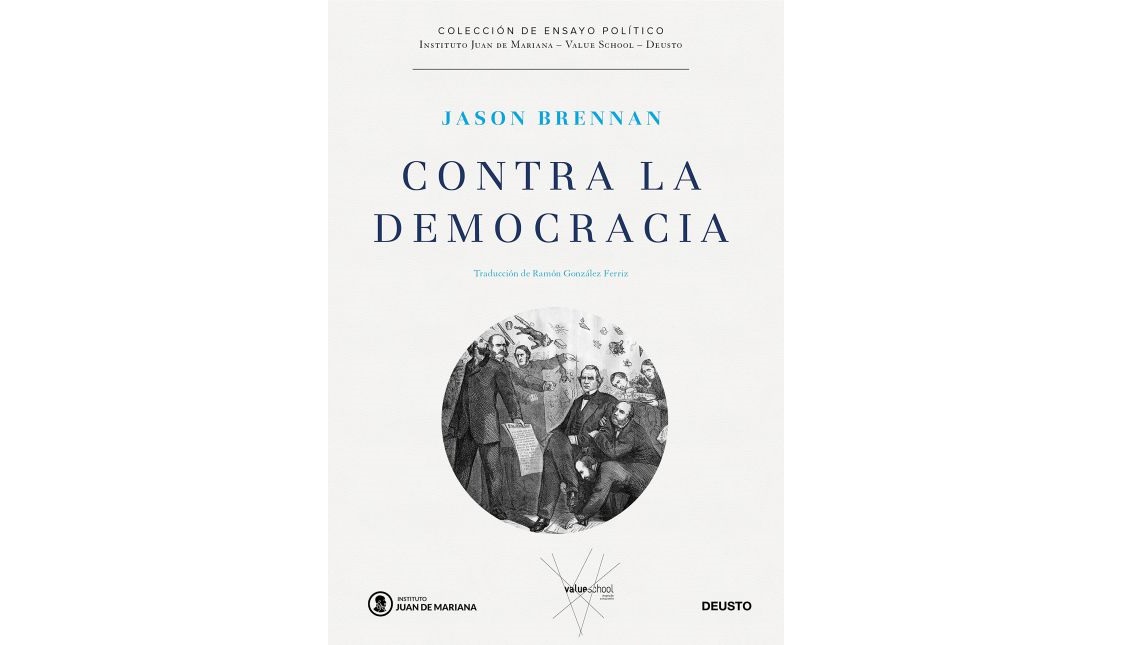
What happens when too many voters are uninformed?
All across the West, we’re seeing the rise of angry, resentful, nationalist, xenophobic and racist movements — movements made up mostly of low-information…
"Those who voted for Trump are ignorant." "People believed all those lies, so they voted for Brexit." "If you voted for them, now do not complain..."
In recent years, the tendency of many experts and political analysts in the West has been to blame the ignorance and lack of voter information on the triumph of populism, nationalism and other unexpected electoral victories, such as Donald Trump in the U.S., or Brexit in the United Kingdom.
What is really true in all this? And why?
According to Jason Brennan, a philosopher and expert in Ethics and Public Policy at Georgetown University in Washington, D.C., some "glaring" errors of democracy have much to do with the lack of knowledge of voters. A theory that he expounds upon in his book "Against Democracy," published by Princeton University Press in 2016 and now published in Spanish under the title "Contra la Democracia."
In the book, the philosopher - who at all times considers himself an advocate of democracy - argues, however, that a new system of government—epistocracy, the rule of the knowledgeable—may be better than democracy, and that it's time to experiment and find out.
According to Brennan, political power depends too much on uninformed voters, whose votes have a real impact on all lives. In his utopian proposal, he suggests that the individual vote should depend on our level of knowledge. Therefore, we could avoid phrases like "the voter does not have enough information to decide on such complex options, he is ignorant ..."
Brennan, who is 38, proposes a system where people are trained to vote:
RELATED CONTENT
"Just as a person who is drunk should not drive, I think that people who do not know what they are doing should not vote, because our vote has an impact on other people," the philosopher said in a recent interview with Spanish newspaper La Vanguardia.
The author, who has been studying the behavior of the voter and the ethics of voting for years, argues that the most competent citizens, those with more political knowledge, should have more political power than the less competent. However, at present, that would imply that the "ideal" voter would be a man, white and rich, he admitted to La Vanguardia.
To correct this situation, Brennan proposes as a utopian measure: to subject voters to a kind of test, so that they can demonstrate whether they are competent or clueless in politics. A system in which the voter should answer first a questionnaire with demographic information and preferences, and then another one to check out his basic knowledge on politics. For example, there would be questions like: Who holds the majority in Congress? What laws have been enacted in recent months? What is the rate of national unemployment, and other recent economic events?
In his utopian system, Brennan classifies voters as Hobbits, Hooligans and Vulcans.
Hobbits are poorly informed citizens with a low level of political participation, hooligans know a lot about politics, but they have very slanted ideas, and they behave like tribes, and Vulcans are the ideal voters:"rationals, well informed and without inadequate loyalties, but they practically do not exist," he explained to La Vanguardia.
To make himself better understood, he gives an example: "Imagine that I am from Boston: it is part of my identity to be a follower of the Boston team and to hate New York teams, so in politics the same thing works. If you are a Catholic of Irish origin who lives in Boston, you're supposed to vote for the Democrats, support them whatever they do, whoever the leader is, because you just want them to win- those are the hooligans, and they are the majority of the voters: they vote for their party and they care very little who is the leader of it," he said in an interview with Spanish newspaper El Mundo.
In conclusion: Brennan argues that the "problem of democracy is that it gives a lot of power to the people while each person individually has very little power. Thus, as individual votes count very little, most people have no incentive to be informed and use their vote carefully."











LEAVE A COMMENT: